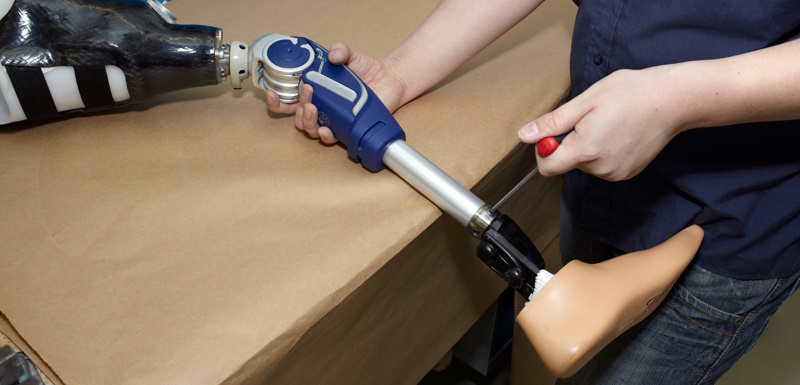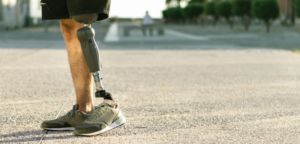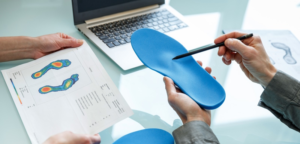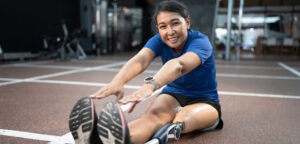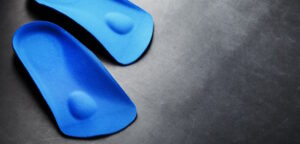Getting Familiar with Orthotic and Prosthetic Options Near You in Kansas City
For those who are researching advanced prosthetics and orthotics, one of the main questions that comes up pertains to how these devices will feel once they are fitted to the patient. In the case of foot orthotics, which are customized inserts that are worn within the shoe, these devices are intended to correct posture, gait, and to minimize any chronic pain symptoms. In short, the feel one should expect from orthotics is a more natural walking motion.
The people that are the most ideal candidates for orthotics typically are dealing with one of the following:
- Feet that are chronically swollen and/or in pain
- Chronic balance issues
- Flat feet
- Feet with high arches
- Foot complications related to diabetes
- Arthritis, bursitis, or plantar fasciitis symptoms that affect the feet
Custom orthotics have proven effective in helping wearers reclaim mobility that feels natural and pain-free. Orthotic devices, however, cannot help with the loss of a limb, which is when prosthetic limbs are utilized.
What to Expect When Getting Fitted with Custom Prosthetics Near Kansas City
The main difference between the majority of lower-limb prosthetics is that prosthetics are intended for those who have either a below-the-knee or above-the-knee amputation. Lower limb amputation is usually caused by the one of the following:
- Trauma
- Diabetic infection
- Vascular disease
- Cancer
- Congenital disorder
Many of our patients here at Cotton Orthotic and Prosthetic Associates usually have some advance notice from their doctor that they will undergo leg amputation, which allows them time to seek out prosthetics near Kansas City and begin with pre-prosthetic education. Regardless of whether the leg amputation is above-the-knee or below-the-knee, there are a few things to be aware of when looking for prosthetic options near you.
Your prosthesis will have a socket, which is the portion of the prosthesis that adjoins the prosthesis to the residual limb. The prosthetic socket is custom molded for the patient’s residual limb’s unique shape and size. After the plaster cast is taken, the prosthetist modifies the mold which, most importantly, allows relief to pressure sensitive areas while applying more pressure to the pressure tolerant areas.
The next step involves a diagnostic socket fitting and alignment considerations. It is during this step that important patient feedback on socket fit and comfort are discussed. After additional adjustments are made to the diagnostic check socket, the prosthetist will complete the fabrication of a socket made from acrylic and carbon fiber that is very durable and ready for everyday wear
Keeping that in mind, it’s not uncommon for a prosthetic socket to feel unusual to the wearer at first. This is typically the case with most advanced prosthetics and orthotics. Wearers will experience a period of adaptation and adjustment as they acclimate to the feel of their prosthetic socket, especially when standing and walking.
When determining if the prosthetic device is well-fitting vs. ill-fitting, consider the following questions:
- Is the device painful or uncomfortable to wear?
- Are there blisters, ulcers, or other breaks in the skin?
- Is your ability to walk compromised by the device?
- Are the pressures throughout the socket uniform?
- Does the fit or alignment of the device impact your balance?
It’s also important to note that the residual limb will change size and shape greatly within the first year, which makes it extremely important to remain close to your prosthetist while these changes occur. You will want to work with a practice that will continue to make adjustments to your prosthetic device as the amputation site changes, which is an area that Cotton Orthotic and Prosthetic Associates excels in.
Where to Find Prosthetic Options Near You in Kansas City
For those that are looking for advanced prosthetics and orthotics, our team at Cotton Orthotic and Prosthetic Associates has decades of combined experience working with individuals with a wide array of medical conditions. This means that we’ve developed custom prosthetics and orthotics for virtually every type of amputation and medical condition that requires an assistive device.
Additionally, our prosthetists put in the time to ensure that advanced prosthetics remain an ideal fit for the amputee. This means that our patients are able to come back and get adjustments as the residual limb changes, ensuring their prosthetic device remains comfortable and functional.
You can reach Cotton Orthotic and Prosthetic Associates by calling (913) 338-2672 or by emailing us directly using the contact form on our website. As the leader in prosthetic options near you, we’ll be able to find you a solution that allows you to regain your quality of life and your mobility.

